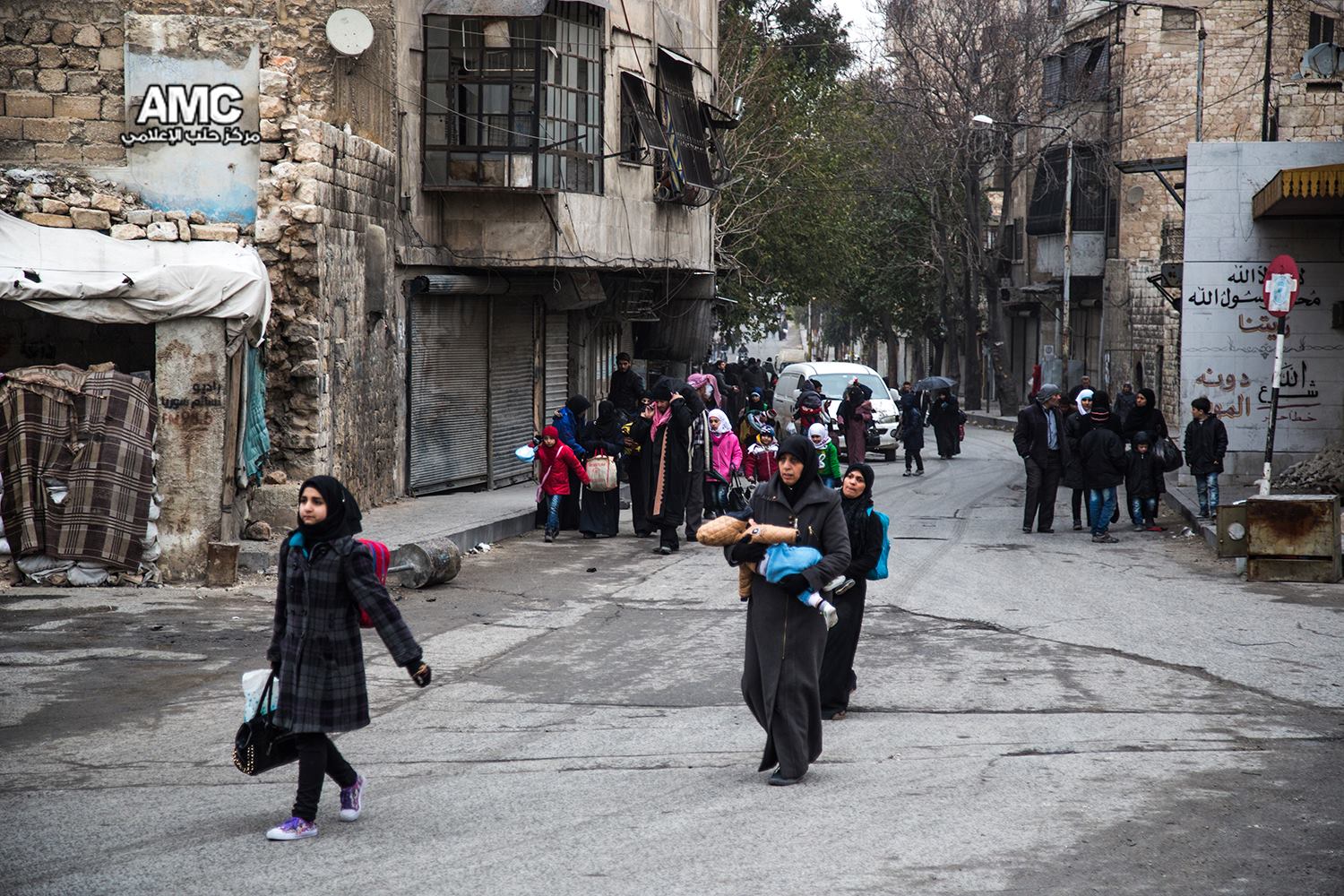Aleppo is likely to fall into government hands soon. Russian jets and Iranian fighters have crushed the hopes of many for a better life and greater freedom. Now the Syrian forces, skilled at little but the killing of unarmed civilians, are setting to work rounding up young men. Many will never be seen again. Meanwhile, ISIS has retaken Palmyra, showing how Assad and his allies have never been interested in fighting that enemy, only the threat of democracy and progress.
Aleppo joins the list of those whose name will be indelibly associated with atrocity and the failure of humanity to respond to suffering. It stands alongside Hiroshima, Guernica, Srebrenica, Dresden, and Grozny as places that have seen destruction that is almost beyond comprehension.
Aleppo may also take on the significance of a city such as Sarajevo as it marks the beginning of the end of an international order that has seen conflict decline significantly and humanitarianism emerge as a priority. Vladimir Putin has been allowed to export “Grozny Rules” to another country; the United Nations Security Council has shown itself to be a pathetic sideshow, a bumbling group of professional liars and cynics; Europe has revealed its dark heart as Marine Le Pen and others whip up hatred of refugees, among the most dispossessed, voiceless people on earth. The United States has elected a president who is scornful of democracy, human rights, indeed anything except for money. We’ve always known of the savagery of the Assad regime but now people are embracing its values.
Those who count the dead in Syria blame Assad for the vast majority of them. Barrel bombs and foreign militias stirred into a frenzy of sectarian hate have killed nearly half a million people. Any promise of a secular democracy, what most Syrians want, has faded, mostly due to the cynicism of the Assad regime that sees a greater threat in an elected local committee than in the desolate ideology of ISIS. Assad has successfully persuaded many of that lie, saving his regime at the cost of his country. Never has the line from Tacitus “They create a desolation and call it peace” been more apt.
Vladimir Putin likes to point out Western hypocrisy, how we weep for some people and happily participate in the slaughter of others. He’s right. Left and right have been happy to throw away humanitarian law, built patiently over decades. British Labour Party leader Jeremy Corbyn embraces the bankrupt Stop the War movement, which refuses to acknowledge Russian war crimes in Syria. Meanwhile Teresa May is so consumed with ensuring refugees don’t reach Britain that she has done nothing to help prevent more people joining the flow. Inadequate pledges of humanitarian aid have replaced the hard grind of diplomacy. John Kerry has put in the work but was fatally undercut by the Obama administration’s determination not to engage in Syria. That simply empowered Putin and Assad.
Trump insists he will crush ISIS, working with the Russians on that aim. But Russia doesn’t actually want ISIS to disappear. It is fighting in Syria to keep its influence there and expand it in the region. Peace would not enhance Moscow’s role nor would it rally the impoverished Russian people. Sucking the US into an alliance in the Middle East would however give Moscow leverage on other issues: Ukraine, sanctions, the undermining of NATO. There is no plan to defeat ISIS and there is certainly no plan to address the underlying causes of ISIS.
History shows this will not last forever. We have to carry on in the face of what seems like innumerable defeats for people who believe in democracy and decency. The people of Aleppo will have to rebuild. Those forced to leave should keep alive hopes for a better future by building the foundations for the society they want to live in. That means resilience, education, participation and a constant fight against lies and cynicism.
AlHakam Shaar, Holbrooke Fellow, and Robert Templer, Director
Shattuck Center on Conflict, Negotiation and Recovery, CEU School of Public Policy
 The Aleppo Project
The Aleppo Project